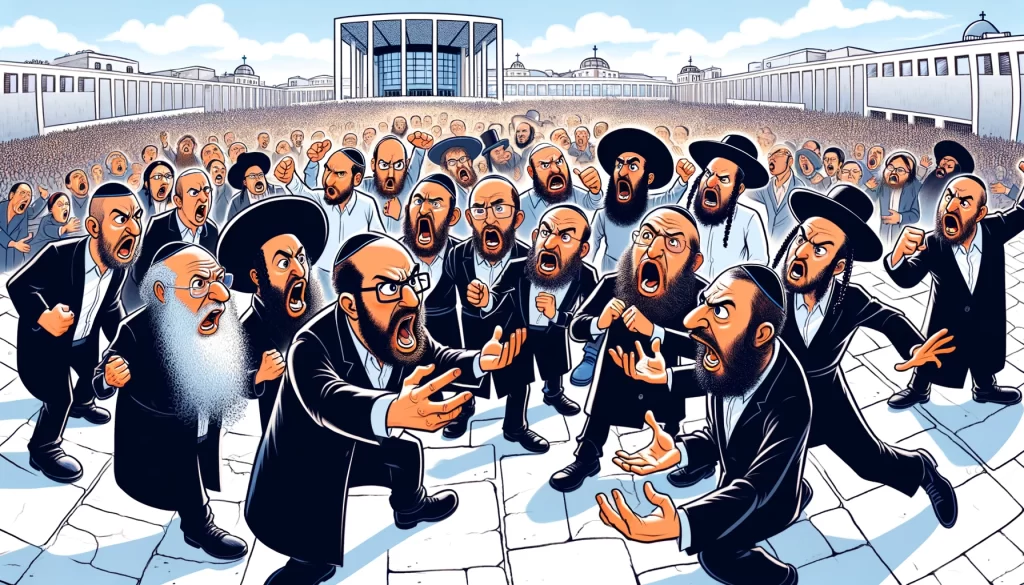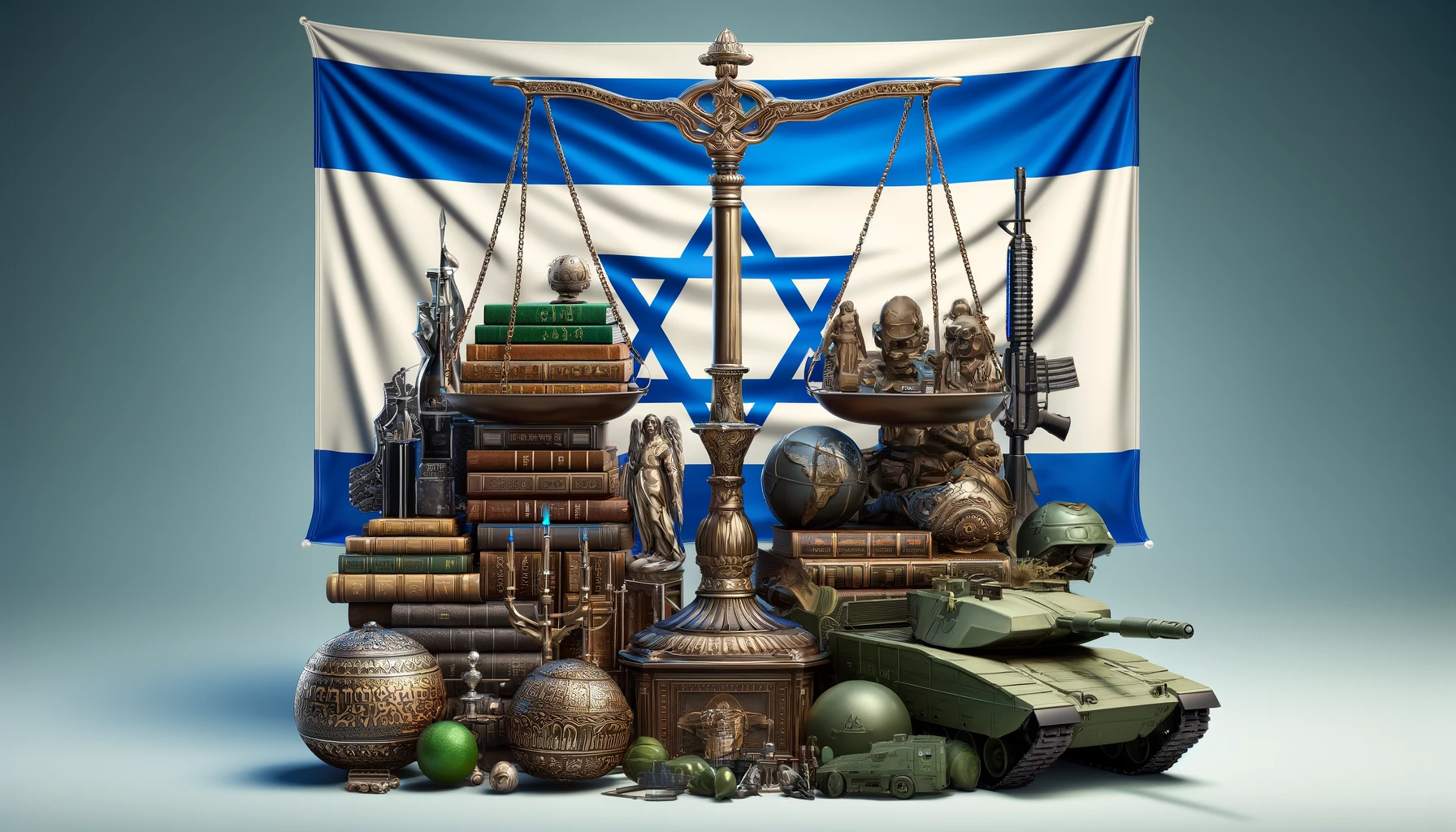Israeli Prime Minister Benjamin Netanyahu finds himself at a crucial juncture, facing perhaps the most significant challenge to his leadership since the tumultuous events of the Gaza war. At the heart of this political storm is a contentious debate surrounding the exemption of ultra-Orthodox Jews, known as Haredim, from military service—a privilege that has been in place since Israel’s inception in 1948.
Israel, a country that prides itself on its military service as a rite of passage for its youth, mandates that most Jewish Israelis serve in the military. However, the ultra-Orthodox community has historically been granted the right to forego this duty in favor of religious studies at seminaries. This longstanding exemption has ignited fierce debate within the nation, especially among its secular and ultra-Orthodox populations, leading to a rift within Netanyahu’s coalition government. This coalition, a blend of secular and ultra-Orthodox lawmakers, finds itself at a crossroads: abolish the exemption and risk losing the ultra-Orthodox members, or maintain it and face the departure of the secular faction. Either scenario could spell the end of the coalition, potentially triggering new elections which, polls suggest, Netanyahu might not win.
The debate over military exemption is not just a matter of national service but is deeply intertwined with questions about the identity and future of the Jewish state. It raises issues about the balance between secular and religious interests in Israel and the extent of autonomy and privileges granted to the ultra-Orthodox community.
This controversy comes at a time when Netanyahu’s leadership is already under scrutiny. Following a raid by Hamas on October 7, which led Israel to invade Hamas’s stronghold in the Gaza Strip, Netanyahu has faced criticism and calls for his resignation. The potential collapse of his coalition over the military exemption issue adds another layer of uncertainty to his political future.

The implications of this debate extend beyond domestic politics. A new centrist-led Israeli government would be unlikely to adopt a very different approach to the conflict in Gaza but could be more amenable to involving the Palestinian leadership in the West Bank in the post-war reconstruction of Gaza. Such developments could also impact Israel’s efforts to normalize relations with Saudi Arabia, efforts that have gained momentum in recent years but were complicated by the recent conflict.
The ultra-Orthodox exemption from military service has been a point of contention for decades, reflecting broader debates over the role of religion in the state and the distribution of public resources. The Supreme Court’s recent decision, requiring the government to suspend subsidies to seminary students who do not serve in the military, has brought this issue to the forefront of national discourse. This decision has sparked outrage among ultra-Orthodox leaders, who view it as a threat to their way of life, which is centered around intensive religious study.
The standoff between secular and religious interests in Israel is emblematic of a larger struggle over the country’s identity and future direction. As the deadline for the government to act on the exemption looms, all eyes are on Netanyahu and his coalition, waiting to see how they will navigate this latest crisis. The outcome of this debate could have far-reaching consequences for Israeli society and its political landscape, potentially reshaping the relationship between the state and its ultra-Orthodox citizens.
This article is based on the following article:

Background Information
Understanding these background elements provides a foundation for comprehending the current debate over military exemptions for the ultra-Orthodox in Israel, revealing the issue’s deep-rooted historical, social, and political dimensions. This debate touches on fundamental questions about the nature of Israeli society, the responsibilities of citizenship, and the balance between secular and religious life in a state that defines itself as both Jewish and democratic.
1. The State of Israel and Its Military
Israel was established in 1948, following a United Nations plan to partition Palestine into Jewish and Arab states, which led to the first Arab-Israeli war. Since its inception, Israel has been involved in multiple conflicts with neighboring countries and non-state actors, making security a paramount concern. Military service is compulsory for Jewish Israelis (both men and women), with men serving for approximately two and a half years and women for about two years. The Israel Defense Forces (IDF) is not just a military institution but also a significant socializing force in Israeli society, seen as a melting pot and a rite of passage for Israeli youth.
2. The Ultra-Orthodox (Haredi) Community
The Haredim are a distinct segment of Israeli society known for their strict adherence to Jewish law and tradition. They live according to a conservative lifestyle, prioritizing religious study over secular pursuits. This community values Torah study (the study of Jewish religious texts) as the highest form of worship and contribution to society. The Haredim have their own schools, which focus on religious education to the exclusion of many subjects taught in secular schools, preparing students primarily for a life of religious scholarship rather than entry into the general workforce or military service.
3. Exemption from Military Service
Since the establishment of the state, the ultra-Orthodox have been granted exemptions from military service to allow young men to study full-time in yeshivas (religious seminaries). This exemption is rooted in an agreement with Israel’s first Prime Minister, David Ben-Gurion, who saw it as a way to preserve religious scholarship. At the time, the number of students eligible for exemptions was small, but as the ultra-Orthodox population has grown significantly, so has the number of exemptions, leading to debates and resentment among the secular majority.
4. Coalition Government in Israeli Politics
Israel operates under a parliamentary system where the government is formed by political parties that must work together as a coalition to have a majority in the Knesset, Israel’s parliament. Given the diverse array of political parties representing a wide range of interests—from secular to religious, left-wing to right-wing—a coalition government in Israel often includes parties with very different agendas. This diversity can lead to significant tensions and disagreements on key issues, such as the military draft exemption for the Haredim.
5. Recent Conflicts and Political Challenges
The article references a recent conflict involving Hamas, a Palestinian Islamist political organization and militant group that has controlled the Gaza Strip since 2007. Conflicts between Israel and Hamas have been a recurring source of violence, influencing Israeli politics and society profoundly. Political leaders’ handling of these conflicts can significantly impact their popularity and political fortunes.

Debate/Essay Questions
- Can a compromise be reached on the issue of military service exemptions that satisfies both secular and ultra-Orthodox communities in Israel? If so, how? If not, why not?
Please subscribe to Insight Fortnight, our biweekly newsletter!
